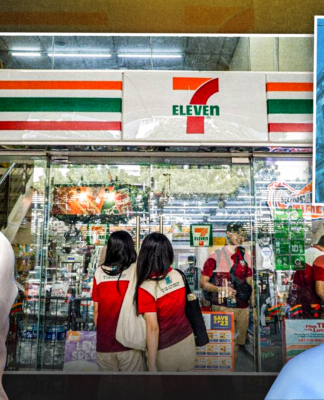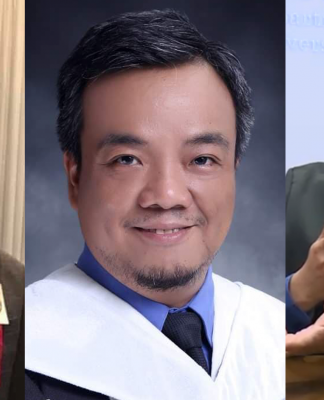THE ADMINISTRATION has slashed the tuition increase for Academic Year 2013-2014 by half, but miscellaneous and other fees were raised by up to 150 percent.
Tuition went up by P31.23 per unit to P1,280.23 for students in the second year and up, a 2.5-percent hike. Tuition increased by 3.5 and three percent in 2012 and 2011, respectively.
UST officials originally proposed a five-percent increase, but decided to cut the rate by half following consultations with student leaders and deans last Feb. 14 and 19.
Central Student Council President Miyuki Morishita said the hike was necessary to ensure that the University would continue to offer high-quality education despite rising costs.
This was way below the 8.5-percent average increase in colleges and universities nationwide, which according to the Commission on Higher Education (CHEd), was the lowest increase in 10 years.
But based on the schedule of fees by the Office of the Vice Rector for Finance, the installment fee was raised to P1,500, a 150-percent increase from the P600 charged in previous years.
The guidance fee also went up by 103 percent to P600 from P395. The energy fee was raised to P2,000, four times higher than last year’s P500.
Moreover, there was a 25-percent hike in the fee for learning materials used for examinations to P125 from P100; and a 22-percent increase in the Student Activity Fee to P275 from P225.
Some fees for sophomores were also adjusted to equal the fees already being paid by freshmen. The cultural fee, for instance, was doubled to P200 from P100.
For seniors, the thesis advising fee was hiked by 25 percent to P1,000 from P800 and the thesis defense fee, to P1,500 from P1,200.
Rosalinda Mendoza, a mother of an incoming Communication Arts senior, said: “The yearly increase is really unreasonable because it is another burden on the part of parents.”
The Varsitarian tried to get the side of the UST Faculty Union, but it declined requests for interview. The Office of the Vice Rector for Finance has yet to reply to similar requests.
No increase in public schools
This year, CHEd approved tuition and other fee increases in 354 private colleges and universities nationwide, out of the 451 that applied.
However, there will be no increase in undergraduate tuition and miscellaneous fees in public higher education institutions (HEIs) after the Philippine Association of State Universities and Colleges (PASUC) approved a moratorium last April 5.
“CHEd will ensure that HEIs meet the guidelines provided by law, especially the requirement of consultation, the allocation of tuition fees, and the strict adherence [to] the processes that seek to make tuition fee increases transparent, reasonable and affordable,” CHEd said in a statement, adding that it took them a “month of careful scrutiny” before the hikes were approved.
By law, 70 percent of the increases must go to the payment of salaries, wages, allowances and other benefits of teaching and non-teaching personnel; and 20 percent for the improvement or modernization of buildings, equipment, libraries, laboratories, and similar facilities, and the payment for other operational costs.
The remaining 10 percent represents return on investments for HEIs if they are stock corporations. Otherwise, it must be used for the operations of HEIs.
Tuition hikes cannot go beyond inflation, or the rate of increase in prices of consumer goods and services as measured by the consumer price index. Inflation stood at 3.2 percent as of February, data from the National Statistics Office showed.
There are 1,683 private higher education institutions nationwide. In the National Capital Region alone, 72 out of 95 HEIs were given the nod to hike their tuition. Daphne J. Magturo














